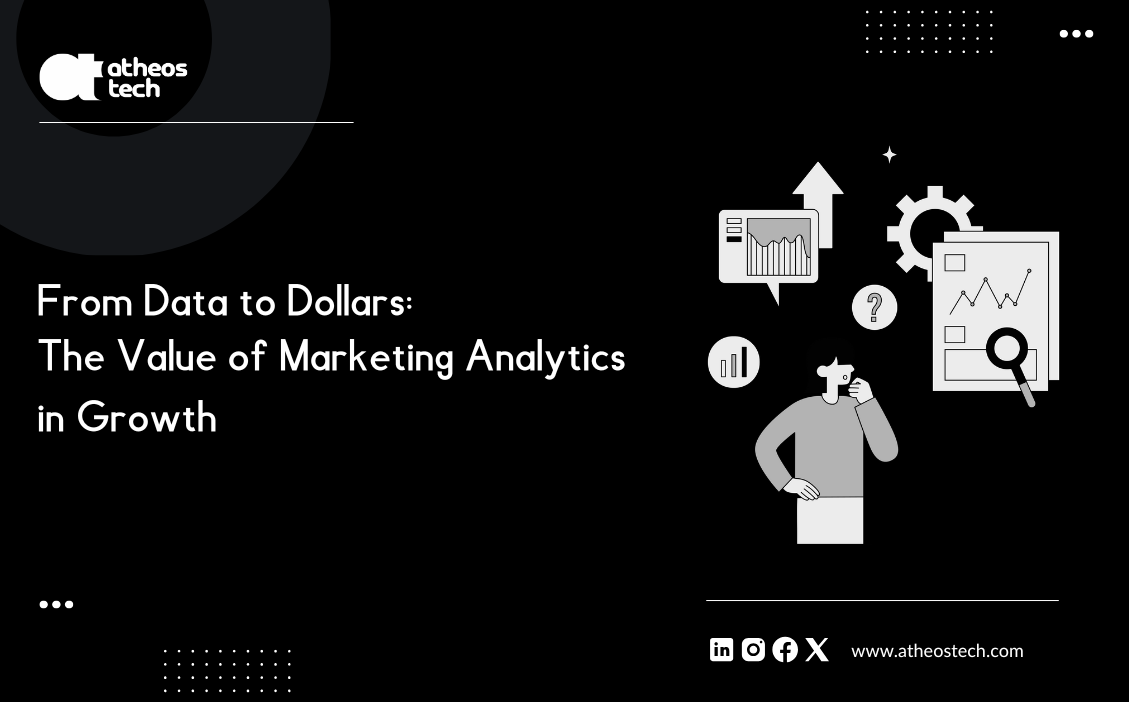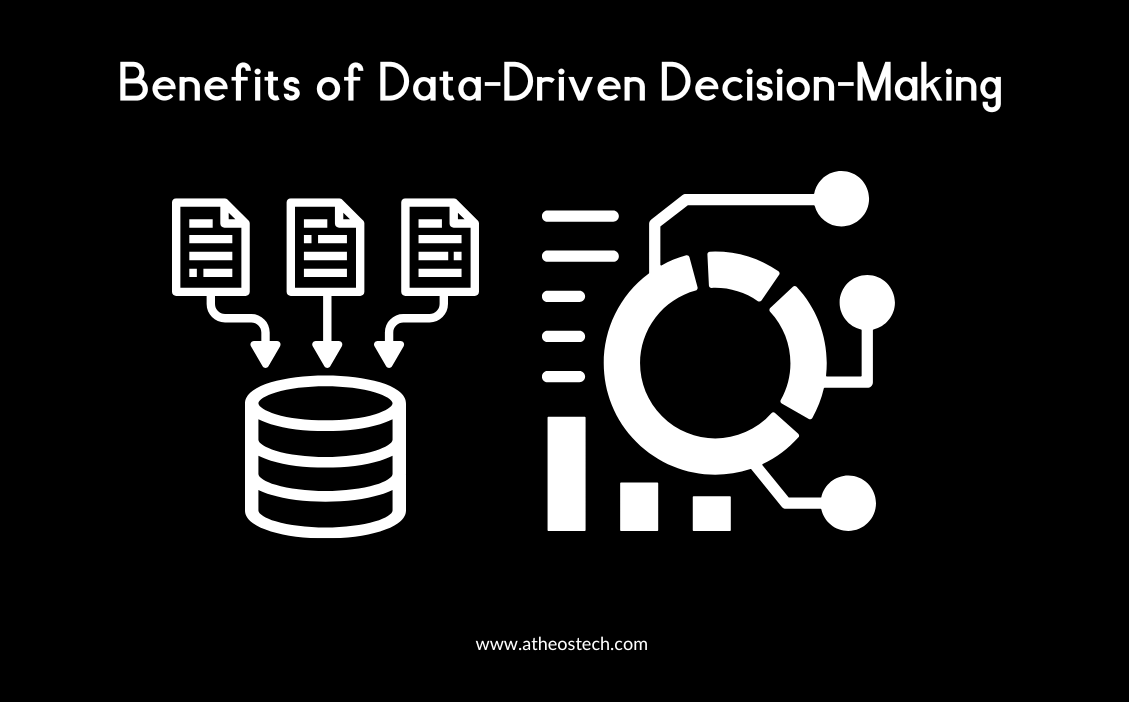
From Data to Dollars: The Value of Marketing Analytics in Growth
Table of Contents
Data is King – Here’s How Marketing Analytics Can Change the Game
Well, data holds importance, but data alone does not drive the authority to make appropriate decisions. It allows us to formulate more effective plans for the future. You might be thinking, “Isn’t this just another fancy term?” No. It is the Aureate standard for any marketers, especially those working with a marketing agency Cyprus, who wish the sky is the limit for their marketing. That being said, let’s ease into marketing analytics and understand it better.
Allow me to start off by putting things into context. For a short period of time, or simply “short,” marketing specialists relied on intuition, imagination, and perhaps, a bit of serendipity sometimes. They would come up with several concepts and try them out in the quest of success. But, everything is different now. Today, thanks to the amount of information available out there, there is a clear advancement in how the planning, execution, and refinements of marketing are done, and the process is clearer and more systematic.
Think of marketing analytics as a wise guide—like Google Maps but for your marketing decisions. It helps you figure out what works, what doesn’t, and where to go next. It’s all about using data to make smart moves that lead to real results. As a Digital Marketing Agency in Cyprus, we know how crucial it is to rely on analytics to drive success in the digital world.
You might ask, “Okay, but how does this relate with me?” No need to panic, we’ll make it simpler. In this article, we will discuss the advantages of choosing marketing analytics, the vital metrics (KPIs) that are paramount you need to focus on, possible tracking tools, and their significance as well. Moreover, we will present case studies of small firms that utilized Cyprus digital marketing agency strategies and achieved growth and success, even if they had no large financial resources available.
How about learning how through data you can actually achieve your marketing objectives? Well well, let’s get started with digital marketing Cyprus and explore how you can make the most of marketing analytics to transform your approach!
Understanding Marketing Analytics
Let’s get straight to it — what is marketing analytics? Think of it as the brain behind the scenes, gathering all the data from your marketing efforts, analyzing it, and showing you what’s really happening. It’s like the Sherlock Holmes of marketing, uncovering hidden patterns and clues to help you make smarter decisions.
To really get it, let’s break marketing analytics into four key steps:
Data Collection
This is where it all starts. Imagine you’re on a treasure hunt, collecting data from places like social media, emails, your website, and even customer chats. The better and more detailed your map (aka your data), the easier it is to find the treasure — valuable insights about your audience and campaigns.
Data Analysis
A transcript for your data for effective and impactful steps to be taken. Most people do not truly enjoy working in spreadsheets (don’t blame you if you do!). But this is where visualisation steps in. Infographics, charts, and graphs all present flabbergasted statistics in a laid out format. It is like appearing of super captions on your data, for it is sure going to make everything easier and lay out roles and responsibilities.
Data-Centric Strategy Formulation
This is the optimum target that every department strives to achieve within the business, to ensure that all the data presented allows you to make decisions on what direction to take moving forward – It is like having all the pieces of a jigsaw complete, the piece that joins your strategy and intuition is data. With pieces of piecing in place, strategy should be easily formulated and you can rest easy that you are not just making guess work but are educated and factual in whatever you aim to do.
At this point, some people might be thinking: “But what difference does this really make?”
Here’s the deal, most people would say “guesswork”, keywords or simply ‘impressions’ to describe marketing works – we the intelligent ones don’t. Businesses have spent so many resources and time on things that don’t work and guess what those cruddy results have come back and showed them. Consulting marketing analytics provides you insights that help understand what works and what does not, ensuring effectuality.
Specifically, if you are looking to improve your enterprise’s marketing activity, there’s no ifs, ands, or buts about it – analytics is needed.
Curious how data can take your business to the next level?
Get in touch with our Digital Marketing Agency in Cyprus.
Benefits of Data-Driven Decision-Making

1. Better Accuracy
Using real data means you’re making decisions based on facts, not guesses. This reduces the chances of mistakes and ensures your efforts hit the mark.
2. Understanding Your Customers
Data shows you what your customers like, need, and expect. With these insights, you can create products and services that truly resonate with them.
3. Spotting New Trends and Opportunities
Data helps you stay ahead of the curve by identifying fresh market trends and growth opportunities before your competitors do.
4. Saving Time and Money
When you know what works, you can focus your resources where they matter most. This cuts down waste and boosts efficiency.
5. Lowering Risks
Data gives you a clearer picture of potential challenges, helping you avoid bad calls and make decisions with more confidence.
6. Making It Personal
With the right data, you can customize your marketing messages and offers, making them more engaging and meaningful for your audience.
You must read: Benefits of Hiring Marketing Agency in Oman
Types of Analytics Tools for Marketing

Let’s talk about the amazing tools that make marketing smarter. These analytics tools help us collect and understand data, making it easier to fine-tune strategies. Think of them as your go-to assistants for decoding what’s working and what isn’t.
1. Web Analytics
Imagine being able to peek into your website and see exactly how visitors interact with it. That’s what web analytics tools do! They show you how many people visit your site, which pages they explore, how long they stay, and even what actions they take—like making a purchase or filling out a form. It’s all about understanding what’s working on your site and what might need a little TLC.
Some popular web analytics tools you can count on are:
- Google Analytics – The gold standard for tracking website performance.
- Adobe Analytics – Perfect for more advanced insights.
- Matomo – Great if you’re looking for an open-source option.
2. Social Media Analytics
Let’s face it—social media is where brands meet people. But how do you know if your posts are making an impact? That’s where social media analytics tools step in. These tools help you measure likes, shares, comments, follower growth, and even your audience’s demographics. Want to know if your memes are hitting the right vibe or if your hashtag is trending? These tools have your back.
Check out these fan-favorite tools:
- Sprout Social – Manage and analyze all in one place.
- Hootsuite – A solid choice for tracking engagement.
- Buffer – Great for both scheduling and analytics.
3. Email Marketing Analytics
Now, let’s talk emails. You know those campaign stats you love to check—like who opened your email, who clicked the links, and how many people converted? Email marketing analytics tools give you all those insights and more. They help you figure out what content works, which subject lines grab attention, and how to improve future campaigns.
Some tried-and-true platforms include:
- Mailchimp – A top pick for most marketers.
- Campaign Monitor – Ideal for beautiful emails and detailed reports.
- Benchmark Email – Perfect for email marketing beginners.
4. CRM (Customer Relationship Management) Analytics
Last but not least, we have CRM analytics. These tools are like your customer detectives, pulling data from every interaction to give you a clearer picture of who your customers are and what they want. They analyze purchase history, behavior patterns, and preferences, helping you create more personalized marketing strategies.
Popular CRM platforms with analytics features include:
- Salesforce – The big name in CRM.
- HubSpot – A user-friendly option with robust analytics.
- Zoho CRM – Affordable and packed with features.
Why It All Matters
Here’s the catch: these software are not just sophisticated tools; negative they are your game changers in the cut-throat marketing scene today. Be it measuring website visits, social media metrics, or adapting Gives an impression of marketing mails, the proper tools make a world of difference.
With the help of these analytical tools, you are not just making guesses on what works – you have the certainty of knowledge. So, let’s engage in the numbers, let’s trust the course, and let us be rewarded for our marketing endeavors!
Identifying Relevant Key Performance Indicators (KPIs) for Marketing Campaigns
When it comes to evaluating the success of your marketing campaigns, KPIs are your best friends. Think of them as the compass guiding you toward your goals. These metrics help you track progress, spot what’s working, and improve what’s not. Depending on your strategy, you might focus on metrics like website traffic, lead generation, or customer retention rate. Let’s break it down.
Revenue-Related Metrics
- Return on Investment (ROI)
Imagine knowing exactly how much bang you’re getting for your buck. ROI tells you how profitable your campaigns are by comparing what you spend to what you earn.
- Customer Lifetime Value (CLV)
CLV is all about seeing the big picture. It estimates the total value a customer brings to your business over their lifetime. Why is this important? Because focusing on retaining loyal customers often costs less than acquiring new ones, making CLV a metric worth its weight in gold.
- Cost per Acquisition (CPA)
How much does it cost to gain a new customer? CPA answers that question, helping you fine-tune your budget and assess the efficiency of your acquisition strategies.
Engagement Metrics
- Click-through Rates (CTR)
This metric measures how enticing your content is. If people are clicking on your links or CTAs, you’re on the right track. Low CTR? Time to rework your messaging or visuals.
- Conversion Rates
The ultimate goal: getting people to take action, whether it’s making a purchase or signing up for a newsletter. Conversion rates tell you how well you’re turning interest into action.
- Bounce Rates
A high bounce rate is like a red flag waving in your face. It means visitors are leaving your site after just one page. This could signal issues with your content, navigation, or overall user experience.
Brand Awareness Metrics
- Reach
Reach is all about potential—it tells you how many unique users have seen your content. It’s a vital metric for understanding the size of your audience.
- Impressions
Impressions, on the other hand, reflect how many times your content has been displayed. Think of it as your content’s visibility in action, even if it doesn’t lead to clicks.
- Share of Voice (SOV)
Want to know how you stack up against the competition? SOV measures your market presence relative to your competitors, giving you insights into brand visibility and market share.
Challenges and Ethical Considerations in Marketing Analytics
- Data Privacy Concerns
In this digital age, customers trust you with their data, and it’s your job to protect it. Think of tools like data encryption and multi-factor authentication as shields guarding their privacy. Secure systems not only build trust but also prevent legal headaches.
- Managing Data Overload
Data is everywhere, and let’s be honest—it can get overwhelming. The trick is to filter out the noise and focus on actionable insights. Invest in tools that help you prioritize and organize. Remember, it’s not about having more data; it’s about using the right data effectively.
- Ensuring Data Accuracy
Bad data equals bad decisions. Regularly clean and validate your data to avoid wasting resources on flawed information.
- Ethical Use of Consumer Data
Data might be numbers on a screen to you, but to your customers, it’s personal. Always be upfront about what you’re collecting and why. Avoid shady tactics that could damage your reputation. Ethics in marketing isn’t just good for your conscience; it’s good for business.
Conclusion
In the area of marketing today, data analytics has taken a center stage amongst prominent activities. It is not about hoarding data; it is about using the data in making better targeted and relevant campaigns and enhancing consumer experiences that we at AtheosTech gives to our client. As we are in the age when tools and techniques are rapidly changing and advancing, it is paramount that organizations take a full pledge and engage in data-driven marketing.
Of course, there are data privacy and even data overload but the good thing is that these risks can be handled well. By choosing digital marketing agency in Cyprus that are relevant to what you are trying to achieve, ensuring good data quality, and being ethical in what you do, you are preparing yourself for success. Businesses that have mastered this psychology will not just survive but will also expand the limits within the scope of marketing.




